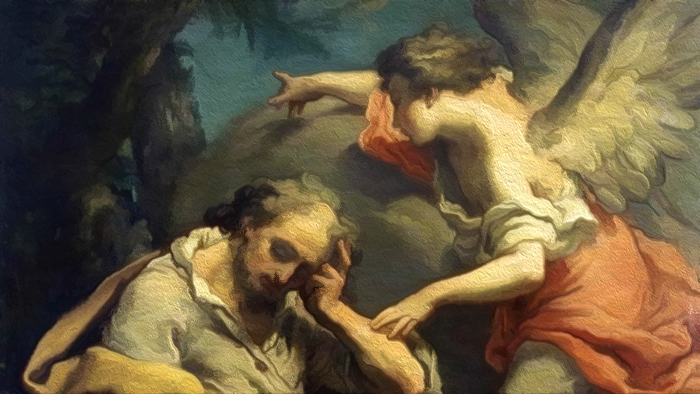
There are countless persons, basilicas, churches, shrines, seminaries, convents, and even towns and cities named after St. Joseph. My native country, Canada, has him as its patron. In the Gospel of Matthew, the annunciation of Jesus’ conception is given to Joseph rather than to Mary: Before they came together, Mary was found to be with child by the Holy Spirit. Joseph, her husband, being an upright man and unwilling to shame her, had decided to divorce her quietly, when an angel appeared to him in a dream and told him not to be afraid to take Mary as his wife, that the child in her had been conceived through the Holy Spirit. After receiving revelation in a dream, he agrees to take her home as his wife and to name the child as his own. Partly we understand the significance of that, he spares Mary embarrassment, he names the child as his own, and he provides an accepted physical, social, and religious place for the child to be born and raised. But he does something else that is not so evident: He shows how a person can be a pious believer, deeply faithful to everything within his religious tradition, and yet at the same time be open to a mystery beyond both his human and religious understanding. And this was exactly the problem for any Christians, including Matthew himself, at the time the Gospels were written: They were pious Jews who didn’t know how to integrate Christ into their religious framework. What does one do when God breaks into one’s life in new, previously unimaginable ways? How does one deal with an impossible conception? Here’s how Raymond Brown puts it: The hero of Matthew’s infancy story is Joseph, a very sensitive Jewish observer of the Law. In Joseph, the evangelist was portraying what he thought a Jew [a true pious believer] should be and probably what he himself was. In essence what Joseph teaches us is how to live in loving fidelity to all that we cling to humanly and religiously, even as we are open to a mystery of God that takes us beyond all the categories of our religious practice and imagination.[1]
[1] Excerpt from Fr. Ron Rolheiser’s reflection, “Joseph and Christmas,” December 2009.
